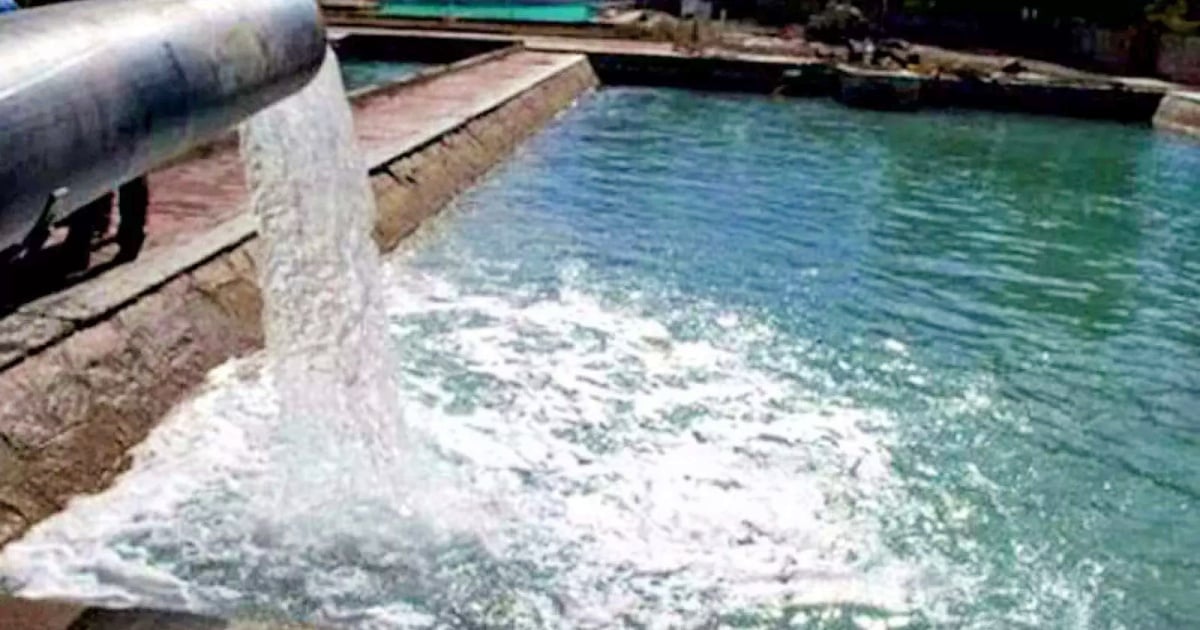As of Monday, February 10, officials in Matanzas are preparing to resume water pumping from the crucial Bello supply source, following a contamination incident that previously halted service. However, the restoration is contingent upon results from physical, chemical, and bacteriological tests to ensure the water meets safety standards, as reported by Periódico Girón. These results are anticipated later in the day.
Meanwhile, the Health and Epidemiology authorities in Matanzas have issued a warning to residents in the neighborhoods of Versalles, Matanzas East and West, and El Naranjal: water must be chlorinated prior to consumption to avert health risks. The official source has indicated that local pharmacies will stock sodium hypochlorite for water purification, which will also be distributed in medical clinics throughout the area.
Contamination in the Bello Basin
Last Wednesday, the Matanzas Hydraulic Resources Directorate announced that a spill of cachaza from a sugar mill in Mayabeque had recently impacted the water quality in the Bello supply source. Two days later, after a thorough analysis by hygiene and epidemiology experts, health authorities in Matanzas alerted the public to the presence of fecal coliforms in the water body.
Dr. Andrés Lamas Acevedo, head of Hygiene and Epidemiology in Matanzas, told the local newspaper that this is not the first instance of water contamination from the sugar mill's discharges, emphasizing the need for corrective measures. A microbiological examination detected fecal coliforms in a sample from Bello, which can be neutralized by boiling or chlorinating the water. Despite this, officials assure that both the basin and the cistern have been cleaned.
Health authorities continue to stress the importance of boiling water or using sodium hypochlorite before consumption, particularly after fecal coliforms were identified in recent tests. These precautions are critical to prevent gastrointestinal diseases.
Public Frustration Amid the Water Crisis
The situation has sparked widespread discontent among Matanzas residents, who express frustration over the lack of information, delays in water supply, and shortages of sodium hypochlorite. Some citizens report that not everyone is receiving information, especially the elderly and families without social media access.
One resident suggested community outreach efforts, possibly involving medical students, to ensure all are informed, highlighting that many "lack phones or connectivity" to receive such alerts. While authorities claim sodium hypochlorite is available, some residents remain skeptical. "Sodium hypochlorite has suddenly appeared! For nearly three years, pharmacies haven't had it, nor the tablets," complained a local woman.
Others warn about potential hoarding: "If they truly distribute and sell it now, hoarders might resell. Please, watch out for this." Another issue is the lack of water in several areas over recent days.
In certain places, such as Reparto Iglesias, residents await resolutions. The transparency of officials has also been questioned, as previous statements have led to confusion. "The provincial Hydraulic Resources delegate claimed the water being pumped was safe. Now, what are we to believe?" a citizen commented on Periódico Girón’s post.
Despite recommendations to boil water, some residents point out this isn't always feasible due to gas shortages: "And where is the hypochlorite? Because gas for boiling... there isn't any," lamented a neighbor.
The water crisis in Matanzas continues to cause concern and calls for quick solutions, clear information, and effective measures to ensure access to safe drinking water.
Frequently Asked Questions About Matanzas Water Crisis
What caused the water contamination in Matanzas?
The contamination was caused by a spill of cachaza from a sugar mill in Mayabeque, which affected the water quality in the Bello supply source.
What measures are being taken to ensure water safety?
Authorities recommend boiling or chlorinating water before consumption. Local pharmacies and clinics will distribute sodium hypochlorite for water purification.
How are residents reacting to the water crisis?
Residents have expressed frustration over communication gaps, water supply delays, and hypochlorite shortages, calling for clearer information and effective solutions.
